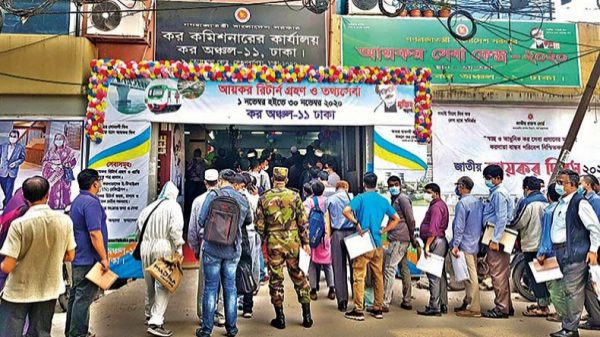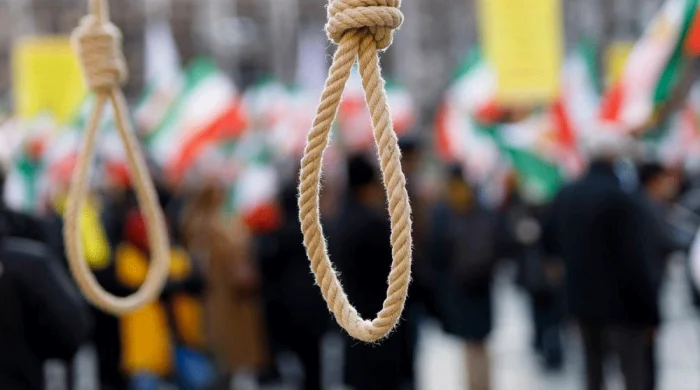Tk 2,000 TIN tax plan likely to be dropped

- Update Time : Saturday, June 24, 2023
- 36 Time View

The government is likely to retreat from the plan to impose Tk 2,000 as the minimum tax for filing returns of the taxpayer’s identification number after widespread criticisms.
Besides, the government might withdraw duties imposed on the import and production of pens, eyeglasses and tissue papers during the passage of the finance bill, said finance ministry officials.
The officials said that other proposed major fiscal measures, including increasing the income tax threshold at Tk 3.5 lakh from Tk 3 lakh and fixing 27.5 per cent corporate tax rate, would remain unchanged.
The finance bill 2023 is scheduled to be passed in the parliament on June 25 while the national budget for FY24 on June 26.
While announcing the finance bill in parliament on June 1, the finance minister imposed a minimum tax of Tk 2,000 on TIN holders, cancelling the provision of declaring zero tax with the submission of TIN returns.
National Board of Revenue officials called the move necessary to expand the tax base as about 8 lakh TIN holders declared zero income tax in their returns in recent years.
The proposed fiscal measure has been critiscised by many, including former NBR chairman Muhammad Abdul Majid.
They argued that the provision of declaring zero tax should be retained.
The finance ministry officials said that the much-debated measure would be cancelled finally while chances for a further increase in the taxable income threshold as demanded by business bodies were unlikely.
Chamber bodies have demanded increasing the taxable income threshold to Tk 5 lakh so that fixed-income-group people can have relief amid the high inflation, recorded at decade-high 9.94 per cent in May by the Bangladesh Bureau of Statistics.
The finance minister is likely to reduce the rate of value added tax on ball pen production.
He proposed a 15 per cent VAT on pen production, but the move has been criticised as it will increase the price of the item used widely by children for studies.
The import duty on eyewear frames and sunglasses has been raised from 5 per cent to 25 per cent while the VAT on their production has been increased to 7 per cent from 5 per cent in the proposed bill.
The government might lower the import duty to check the price hike of the import-dependent essential item, said an official, adding that the proposed provision for submitting tax return against foreign trip might also be withdrawn.
The NBR is in desperation to mobilise more revenue to increase the tax-GDP ratio that is one of the lowest in the world.
The government is worried as the tax-GDP ratio has fallen to 7.5 per cent in recent years from 11 per cent a decade ago.
Besides, it has already agreed to increase the revenue generation growth by 0.5 percentage points every year under the current $4.7 billion three-year-loan programme from the International Monetary Fund.
The finance minister has, meanwhile, projected an ambitious revenue collection target in the proposed national budget for FY24.
Out of the overall Tk 5 lakh crore revenue target, the NBR has been given the target of collecting Tk 4.30 lakh crore.
Policy Research Institute executive director Ahsan H Mansur said that the revenue target was very challenging as the tax administration has not seen any major reform in the past one decade.
He went on to say that the automation of the tax collection system was imperative.

























